Can You Put Essential Oils in a Humidifier
Curious about using essential oils in a humidifier? Wondering about the benefits and risks of this practice?
We explore the world of essential oils and humidifiers, discussing whether it’s safe to mix essential oils in a diffuser, the advantages of doing so, and the potential drawbacks.
We also delve into which essential oils work best in humidifiers and provide tips on how to use them effectively.
So, sit back, relax, and let’s dive in!
Key Takeaways:
What Are Essential Oils?
Essential oils are concentrated extracts derived from various plants, flowers, herbs, or fruits through processes like distillation or cold pressing.
These oils capture the fragrance and essence of the source material and are known for their aromatic properties and potential health benefits.
Different plants yield different varieties of essential oils, each with its unique composition and therapeutic qualities.
For example, lavender oil is commonly used for its calming effects, while peppermint oil is known for its invigorating properties.
What Is a Humidifier?
A humidifier is a device that increases the moisture content in the air within a specific area or room. These devices come in various types, such as ultrasonic humidifiers or traditional warm mist humidifiers, and play a crucial role in maintaining optimal indoor humidity levels for health and comfort.
Humidifiers help to alleviate issues associated with dry air, such as dry skin, irritated sinuses, and respiratory problems. By adding moisture to the air, they improve overall air quality, making the environment more comfortable and healthier to breathe in.
Ultrasonic humidifiers use high-frequency sound waves to produce a fine mist, while warm mist humidifiers boil water to create steam. Cool mist humidifiers, on the other hand, provide moisture without heating the water first. Regardless of the type, using a humidifier in your home can also protect wooden furniture, reduce static electricity, and prevent the spread of airborne viruses and bacteria.
Can Essential Oils Be Used in a Humidifier?
Yes, essential oils can be used in a humidifier to disperse their aromatic properties along with the moisture released by the device. This combination allows for creating a fragrant and beneficial atmosphere in the room, enhancing the overall experience of using a humidifier.
When these oils are added to water in the humidifier’s reservoir, they are broken down into tiny molecules. As the water evaporates, these molecules are released into the air as a fine mist, carrying the aroma and potential health benefits of the essential oils throughout the room. This process not only adds a pleasant scent but also introduces natural therapeutic effects into the air, creating a calming or invigorating environment, depending on the oils used.
What Are the Benefits of Using Essential Oils in a Humidifier?
The benefits of using essential oils in a humidifier include enhancing air quality, promoting better respiratory health, creating a soothing ambiance with delightful fragrances, and potentially boosting overall well-being for individuals and family members at home.
When essential oils are dispersed through a humidifier, the molecules are released into the air, acting as a natural air purifier by combating bacteria and airborne pathogens. Essential oils like eucalyptus and tea tree have antimicrobial properties that can help cleanse the air. These oils not only add pleasant scents but also contain therapeutic qualities that can uplift moods and alleviate stress.
By inhaling the aromatic particles, individuals may experience improved focus, relaxation, and even better sleep quality. The combination of essential oils and humidifiers can transform a living space into a tranquil sanctuary, benefiting both physical and mental well-being.
What Are the Risks of Using Essential Oils in a Humidifier?
While using essential oils in a humidifier can offer numerous benefits, it is essential to be cautious about potential risks such as oil buildup in the machine, safety concerns related to vaporized oils, and the impact on plastic components that may not be compatible with certain oils.
Oil buildup within the humidifier can not only clog the device’s internal mechanisms but also lead to reduced efficiency and potential malfunctions. To mitigate this risk, regular maintenance is crucial. This includes cleaning the humidifier regularly, following the manufacturer’s guidelines for oil usage, and ensuring proper ventilation during operation.
Some essential oils, when vaporized, can pose safety hazards if inhaled in excess quantities. It is important to use oils judiciously and monitor the concentration levels to prevent any respiratory issues. Certain oils may have corrosive properties that can deteriorate plastic parts over time, affecting the humidifier’s durability.
Which Essential Oils Can Be Used in a Humidifier?
Several essential oils can be used in a humidifier, including popular choices like lavender, lemon, peppermint, eucalyptus, and orange oils. Each of these oils offers unique aromas and potential health benefits when diffused through a humidifier.
- Lavender oil: known for its calming and relaxing properties, lavender oil can help with stress relief and promote better sleep.
- Lemon oil: has uplifting and refreshing qualities, ideal for boosting energy levels and enhancing mental clarity.
- Peppermint oil: a popular choice for its invigorating scent, peppermint oil can aid in relieving congestion and improving focus.
- Eucalyptus oil: prized for its respiratory benefits, eucalyptus oil can help clear sinuses and support easier breathing.
- Orange oil: with its cheerful and vibrant aroma, orange oil is great for uplifting mood and promoting positivity.
Lavender Essential Oil
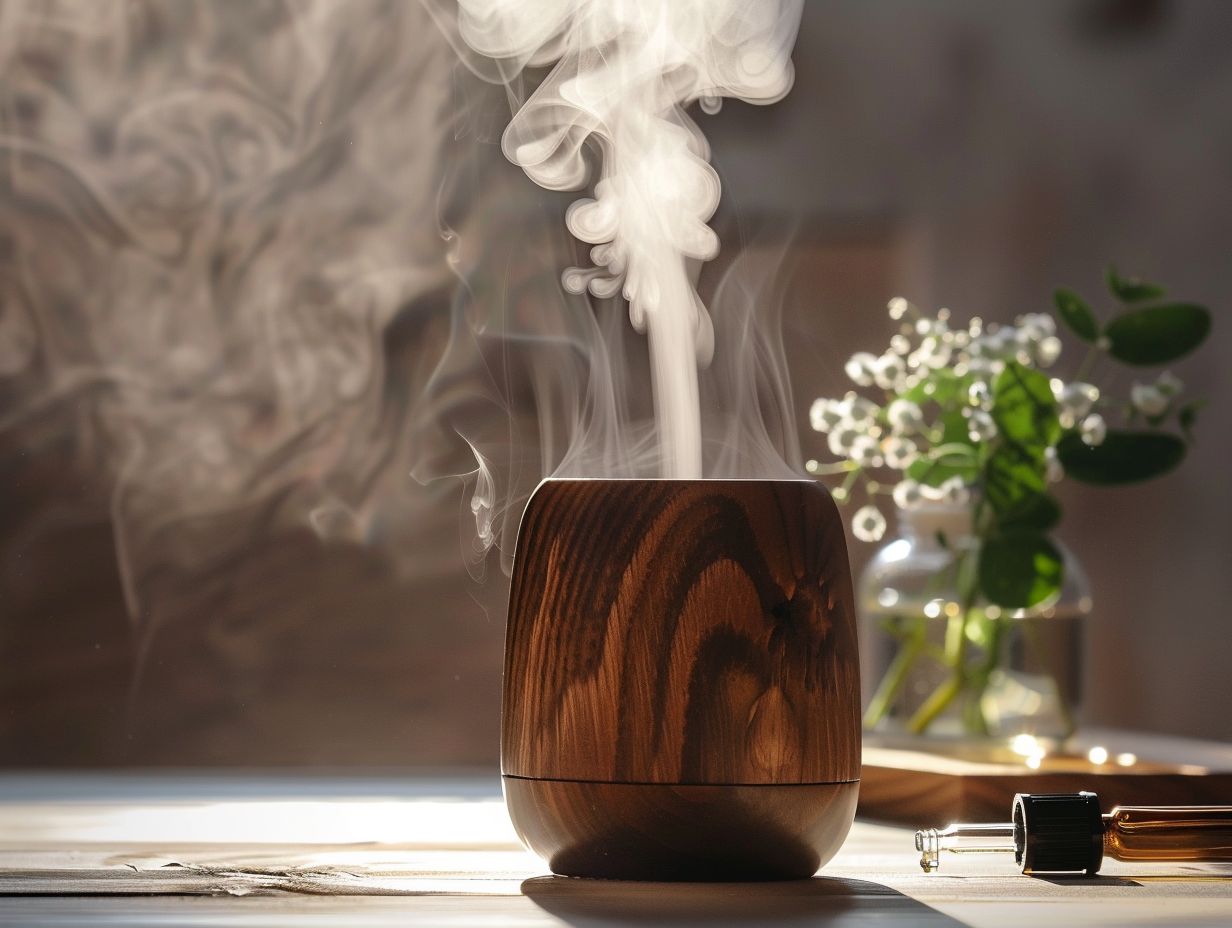
Lavender essential oil is a popular choice for humidifiers due to its calming fragrance that promotes relaxation and helps improve sleep quality. When diffused with a humidifier, lavender oil can create a soothing atmosphere in the room.
This essential oil has been used for centuries due to its multitude of benefits beyond just its pleasant scent. Lavender is known for its ability to reduce stress, anxiety, and improve overall mood. By inhaling the aroma of lavender essential oil through a humidifier, the therapeutic properties can help calm the mind and body, making it a perfect addition to your bedtime routine.
Eucalyptus Essential Oil
Eucalyptus essential oil is known for its respiratory benefits and invigorating scent.
When added to a humidifier, eucalyptus oil can help clear nasal passages, support breathing, and create a refreshing atmosphere in the room. The antimicrobial properties of eucalyptus oil can also help purify the air, making it ideal for improving indoor air quality. The soothing aroma of eucalyptus can promote relaxation and relieve stress, contributing to a more peaceful environment. Its versatility extends beyond respiratory support, as it is often used in aromatherapy for its uplifting and rejuvenating qualities, providing a multi-faceted experience for both physical and emotional well-being.
Peppermint Essential Oil
Peppermint essential oil is renowned for its cooling sensation and ability to promote mental focus. When dispersed through a humidifier, peppermint oil can create a refreshing and energizing environment that supports clarity and concentration.
Its invigorating effects not only awaken the senses but also stimulate cognitive function, helping individuals stay sharp and alert during tasks. The peppermint essential oil can uplift mood and combat feelings of lethargy, making it a valuable tool for enhancing overall well-being.
Lemon Essential Oil
Lemon essential oil is valued for its uplifting aroma and cleansing properties. When used in a humidifier, lemon oil can help create a fresh and invigorating atmosphere, promoting a sense of cleanliness and brightness in the room.
Diffusing lemon essential oil through a humidifier not only uplifts the spirits but also acts as a natural air purifier, eliminating unwanted odors and promoting a healthier indoor environment. The invigorating scent of lemon oil is known to enhance focus and concentration, making it ideal for workspaces or study areas. The antimicrobial properties of lemon oil help in reducing airborne bacteria, creating a more hygienic space. Its subtle yet refreshing fragrance can transform any room into a sanctuary of calm and rejuvenation.
How to Use Essential Oils in a Humidifier?
To use essential oils in a humidifier effectively, it is advisable to dilute the oils with water, add the diluted mixture to the humidifier’s water tank, and adjust the humidity level based on personal preferences and the desired intensity of fragrance.
When diluting essential oils for a humidifier, the general recommendation is to use around 5-10 drops of essential oil per 100ml of water. This ensures that the fragrance is dispersed evenly without overwhelming the senses. After dilution, carefully pour the mixture into the water tank of the humidifier, ensuring that it is evenly distributed. To control the intensity of the aroma released, you can adjust the humidity settings on the humidifier, dictating how much essential oil-infused mist is dispersed into the air.
Dilute the Essential Oils
Before adding essential oils to a humidifier, it is essential to dilute them with water to prevent clogging the device or causing potential safety hazards. Dilution ensures a balanced dispersion of fragrance and moisture.
Proper dilution methods involve adding a few drops of essential oil to a certain amount of water depending on the humidifier’s capacity. A general rule of thumb is to use around 3-5 drops of essential oil per 100ml of water. This ratio not only helps in avoiding blockages but also allows the oils to disperse evenly in the air, enhancing the overall aroma and benefits they provide.
Diluting essential oils for a humidifier is crucial for maintaining the device’s longevity and efficiency. Undiluted oils can leave residue and build-up that can damage the humidifier over time, leading to malfunctioning and potentially costly repairs.
Add the Essential Oils to the Water Tank
Adding diluted essential oils to the water tank of a humidifier allows for the oils to mix with the moisture released into the air, facilitating their diffusion and dispersion throughout the room for a consistent and aromatic experience.
This process functions on the principle that as the humidifier emits water vapor, the diluted essential oils blend seamlessly with the moisture, creating a gentle mist infused with the chosen scent. The molecular structure of the oils interacts with the water vapor to transform the atmosphere, offering both olfactory and therapeutic benefits.
The diffusion of these oils through the air can help alleviate stress, boost relaxation, and even purify the indoor environment, making it a popular choice for enhancing well-being in homes and workspaces alike.
Adjust the Humidity Level
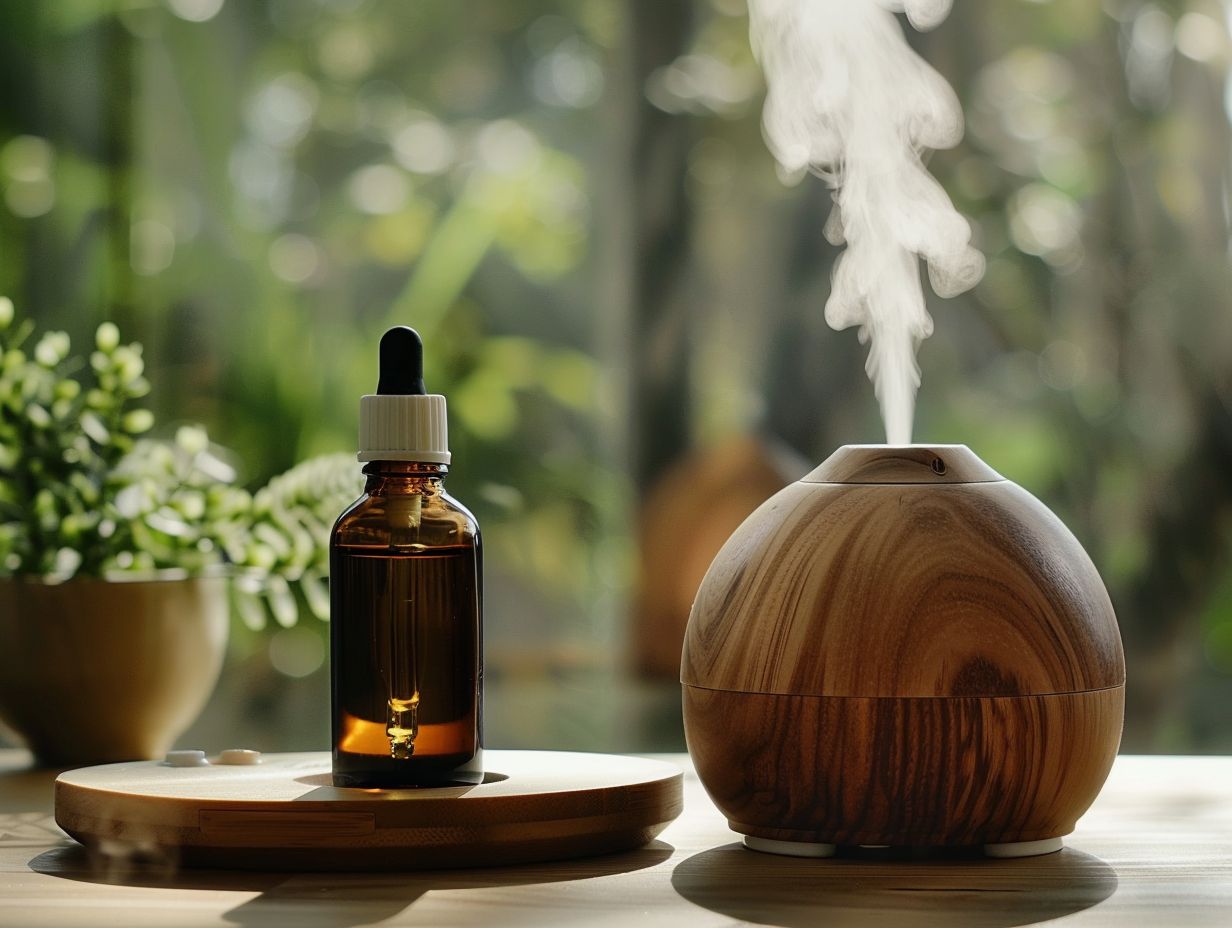
Fine-tuning the humidity level on the humidifier allows for controlling the intensity of fragrance dispersed by the essential oils, ensuring a comfortable and customized environment that suits personal preferences and enhances the overall atmosphere in the room.
It is crucial to find the right balance when using essential oils in a humidifier to avoid overpowering scents or excessive moisture levels. By adjusting the humidity setting, you can prevent issues like condensation or water accumulation, which could lead to mold growth. Maintaining a harmonious blend of moisture and fragrance not only promotes a pleasant ambiance but also supports the therapeutic benefits of the essential oils, ensuring a calming and rejuvenating experience for both mind and body.
What Are Other Ways to Use Essential Oils?
Along with using essential oils in a humidifier, these versatile oils can be utilized in various other ways such as through diffusing for aromatherapy, topical application for skin benefits, and in some cases, ingestion for specific health purposes.
When opting for diffusing as a method for enjoying the aromatic benefits of essential oils, it’s essential to choose a high-quality diffuser to disperse the oil particles effectively into the air.
For topical application, it’s crucial to dilute the essential oils with a carrier oil to prevent skin irritation and maximize absorption, enabling the oils to nourish and rejuvenate the skin. Learn more about how much essential oils in a humidifier.
For those considering ingestion, caution must be exercised, as not all essential oils are safe for internal use, and it’s advisable to consult with a qualified aromatherapist or healthcare professional before ingestion.
Diffusing
Diffusing essential oils involves dispersing their aromatic molecules into the air to create a pleasant and therapeutic atmosphere. Methods like ultrasonic diffusers use vibrations to atomize oils, producing a fine mist that enhances the overall ambiance.
Ultrasonic diffusers are highly popular for their ability to maintain the integrity of essential oils due to not using heat during the diffusion process. By breaking down the oils into smaller particles, these diffusers ensure a gentle release that retains the oils’ beneficial properties. The mist produced by ultrasonic diffusers also adds moisture to the air, improving respiratory health and creating a soothing environment. This type of diffuser is particularly effective in medium-sized rooms, spreading the scent evenly for a consistent and long-lasting aromatic experience.
Topical Application
Topical application of essential oils involves applying diluted oils directly to the skin for various health and wellness benefits. Citrus oils, for example, are popular choices for skincare routines due to their refreshing and invigorating properties.
When using essential oils topically, it is crucial to dilute them with a carrier oil like jojoba or coconut oil to prevent skin irritation or sensitization. The skin’s absorption of these oils can offer benefits such as stress relief, improved mood, and even relief from minor skin irritations.
Lavender oil, known for its calming effects, is ideal for promoting relaxation and supporting healthy skin. Tea tree oil, with its antibacterial properties, can help combat acne and promote clearer skin.
Ingestion
Ingesting essential oils involves consuming them internally for potential health benefits, but caution must be exercised due to safety concerns and the need for expert guidance. Lavender oil, when used in culinary applications, can add a unique flavor profile to dishes.
Lavender oil is known for its calming properties and delightful fragrance, making it a popular choice in aromatherapy. When ingested, it can also offer potential digestive health benefits. Experts recommend diluting essential oils in a carrier oil before ingestion to reduce the risk of irritation. It’s crucial to source high-quality, food-grade oils to ensure purity. While some oils are safe for culinary use, such as peppermint and lemon, others may be toxic if ingested. Always consult with a healthcare professional or aromatherapist before using essential oils internally.
Conclusion
The combined use of essential oils and humidifiers offers a versatile and effective way to enhance indoor air quality, promote holistic well-being, and create a pleasant ambiance at home. By understanding the benefits, risks, and proper usage techniques, individuals can optimize the aromatic and therapeutic potential of essential oils in humidifier settings.
When essential oils are diffused through a humidifier, the fine mist carries the aromatic molecules throughout the room, potentially aiding in relaxation, stress relief, and improved sleep quality. The antimicrobial properties of certain essential oils can help purify the air, reducing airborne bacteria and viruses. By incorporating essential oils into your humidifier routine, you not only refresh the atmosphere but also support your overall wellness.
Final Thoughts and Recommendations
In final thoughts, the combination of essential oils and humidifiers not only enhances the ambiance but also contributes to a healthier and more refreshing living space.
Essential oils, derived from natural plants, offer a wide range of benefits beyond just creating a pleasant scent. They can help improve mood, reduce stress, and even support better sleep quality. When diffused through a humidifier, these oils can help alleviate respiratory issues and promote a more comfortable indoor atmosphere. To maximize the experience, consider experimenting with various oil combinations to find the perfect blend for your preferences.
Regular maintenance of humidifiers is crucial to ensure optimal performance and prevent the growth of mold or bacteria. Cleaning the tank and changing filters regularly not only extends the lifespan of the device but also maintains air quality. Safety is paramount when using essential oils in humidifiers, so always follow the manufacturer’s instructions and dilute oils properly to avoid any adverse reactions.
By incorporating essential oils in Vicks humidifier routine, you are not only enhancing the ambiance of your living space but also improving overall well-being. The soothing properties of these oils combined with the humidifier’s functionality create a harmonious environment that promotes relaxation and boosts mood. Embrace this natural synergy to create a healthier and more enjoyable indoor atmosphere for you and your loved ones.
Frequently Asked Questions
Can You Put Essential Oils in a Humidifier?
Yes, you can put essential oils in a humidifier to enjoy their aromatic benefits while also increasing the humidity in the air.
What types of essential oils can be used in a humidifier?
Most essential oils can be used in a humidifier, but it’s best to use oils that are 100% pure and therapeutic grade to avoid any potential clogging or damage to the humidifier.
How many drops of essential oil should I put in a humidifier?
The amount of essential oil to add depends on the water capacity of your humidifier. As a general rule, 3-5 drops of essential oil per 100 ml of water is recommended.
Can I mix different essential oils in a humidifier?
Yes, you can mix different essential oils in a humidifier to create your own custom blend. Just be sure to follow the recommended amount of drops for each oil and ensure they are compatible with each other.
Are there any essential oils that should not be used in a humidifier?
Yes, there are a few essential oils that should not be used in a humidifier, such as citrus oils, eucalyptus, and cinnamon. These oils can potentially damage the plastic components of the humidifier.
Is it safe to use essential oils in a humidifier around children and pets?
It’s generally safe to use essential oils in a humidifier around children and pets, but it’s important to use caution and avoid using oils that are not safe for them, such as peppermint or tea tree oil. It’s also best to use the humidifier in a well-ventilated room and monitor the amount of time it is being used.

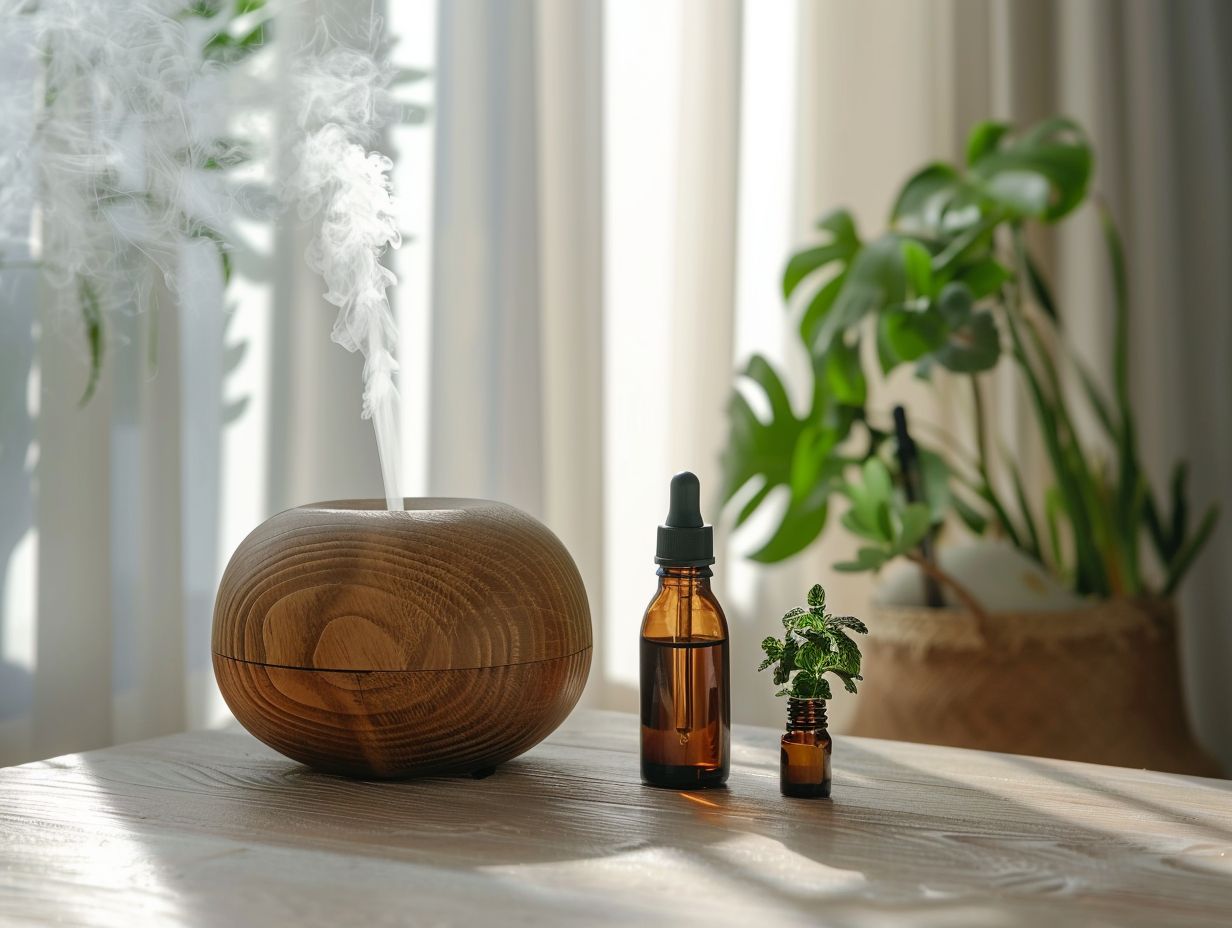
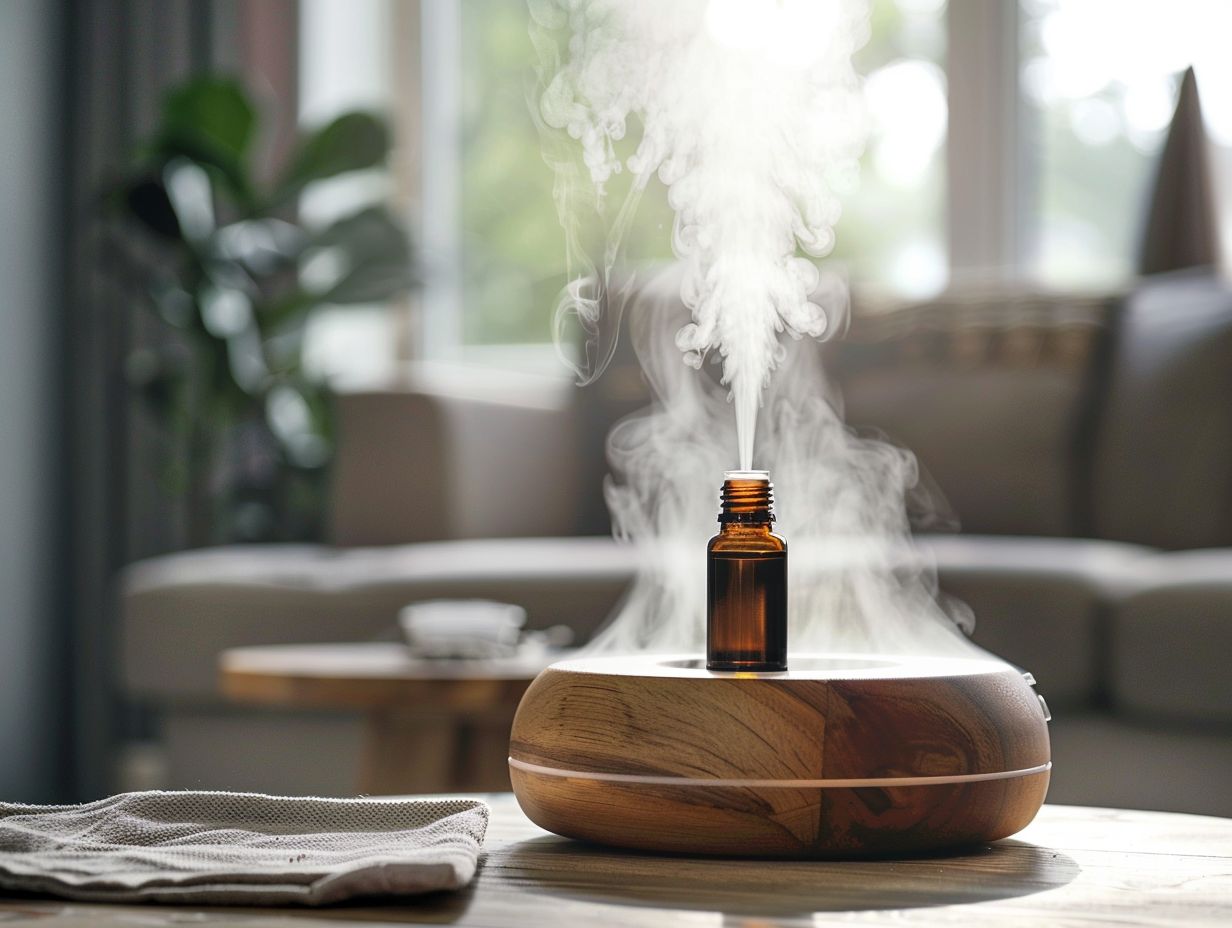


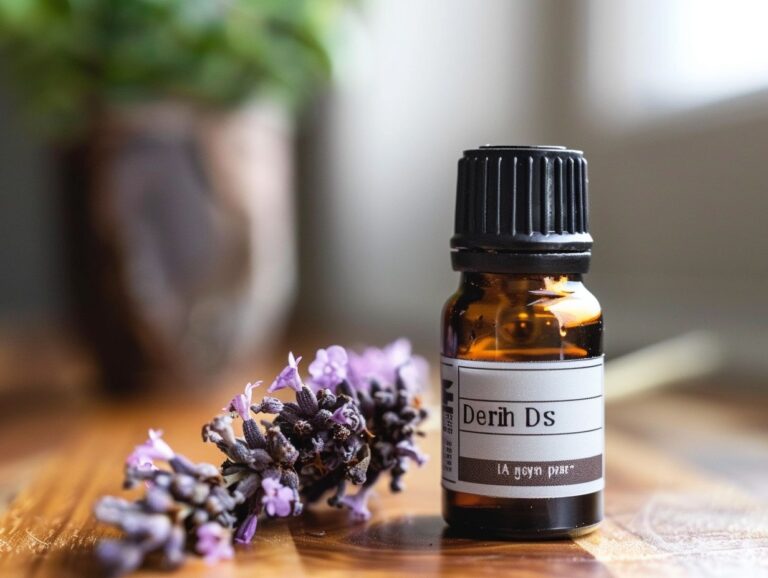
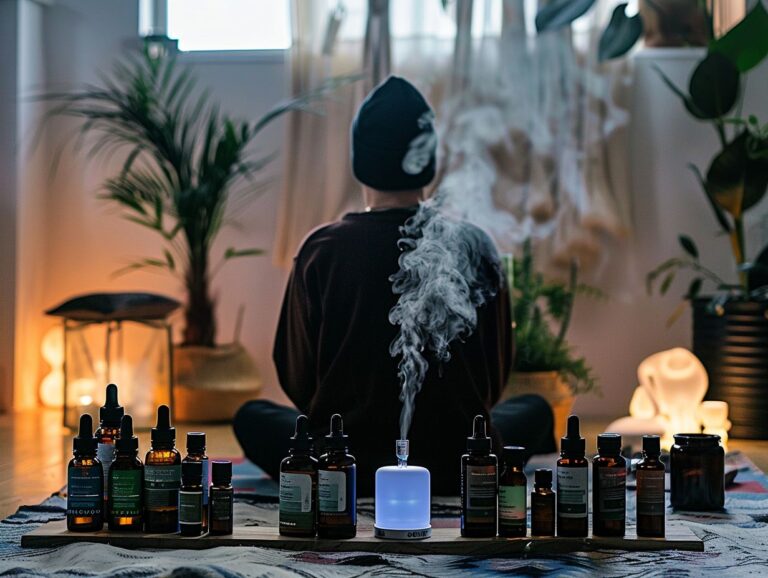
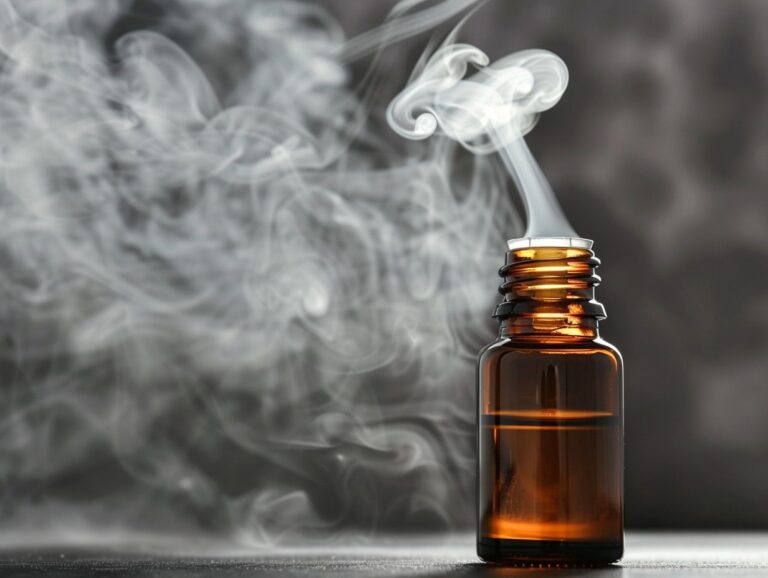
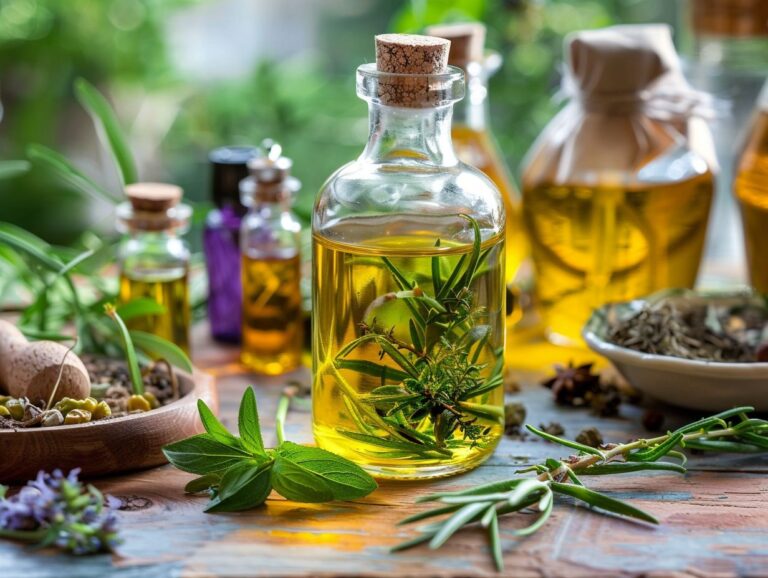
3 Comments